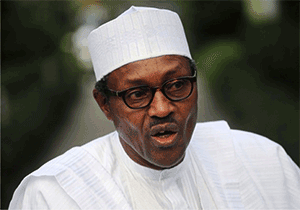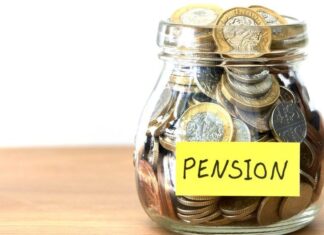Special Correspondent, SAM NWOKORO, looks at leadership qualities of some of the presidential aspirants, identifying their strengths and weaknesses.
Experts’ views that leadership is the art of mobilising human and material resources towards attaining some sets of positive goals make sense. The task of leadership, according to them, entails a leader possessing some qualities desirable for achieving set goals. Leadership tasks, they add, entail: problem identification, mastery of problem-solving techniques and strategies, mobilisation of the requisite human resources that help in the realiation of stated objectives and goals set. The total aim is to achieve result.
In political leadership, however, it has been observed that the environment and social temperature at times determine the type of leaders that are required, the type of objectives and goals that are desirable, and the strategies for attaining such goals.
According to scientific schools of thought on leadership, there are clear demarcations between the leadership skills required for the business/corporate set-up and that for political leadership/administration. While the corporate boss deals with a fairly easily identifiable constituency like consumers, labour, stakeholders, industry regulations and regulators, the political leader deals with a mass of all of the above, including variegated local and foreign interests.
Against this background, attempts are being made to situate the character of politicians aspiring for various positions in the country, especially the presidency. Though the two leading political parties – All Progressives Congress (APC) and Peoples Democratic Party (PDP) – are yet to hold their primaries to choose their flag-bearers, some names are being touted as leading aspirants.
Muhammadu Buhari: This ex-general is one of Nigeria’s former heads of state. He was military head of government after the fall of the Second Republic. While he ruled, his stern disposition against indiscipline was legendary. He jailed Second Republic politicians, enacted series of retroactive and harsh decrees as demanded by the social conditions of that time. Most of those decrees, however, did not achieve much in enthroning noble values, or had any transformative effect on the Nigerian leadership behaviour and followership.
His hasty trial of the corrupt leadership class of 1979-83, incidentally did not tame or stem the plague of corruption which was accentuated by his very constituency, the military. It is not on record that any military officer was tried for corruption or dismissed from the army on grounds of sleaze throughout his tenure between January 1, 1984 and August 27, 1985. Nor was there any record or public disclosure of the amount of loot recovered from the politicians he overthrew or how the loot was spent accountably.
Critics of the retired army officer, in fact, allege that his first stint at the presidency as military head was lacking in any worthwhile development vision or sustainable template for Nigeria’s growth beyond monthly sanitation exercises, the queue culture and social orientation television sloganeering without the necessary institutional enforcement structures.
The next time he served the nation was briefly as chairman of the Petroleum Trust Fund (PTF) which tried to make social amenities get to those outside the cities. But his achievements in that project, some allege, were uneven: some communities got, and others did not.
A major factor many count in his favour, however, is his zero tolerance for corruption. Speaking on the qualities of the former head of state, a social commentator, Akinsola Omdiji, said: “If Nigeria is truly serious at tackling corruption and putting the country on the right pedestal, Buhari is the man that should be the president next year.”
What cannot easily be determined is the extent of Buhari’s financial war chest to weather through APC presidential primaries that may see the likes of former Vice President, Atiku Abubakar, and Kano State governor, Rabiu Musa Kwankwaso; in the race. He had run for the presidency on three occasions without success.
Sule Lamido: Going by media reports, Governor of Jigawa State, Sule Lamido, has already rolled out his campaign vehicles ahead of the PDP presidential primary.
Supporters of the governor claim that he has done well for Jigawa, hence his qualification to go for presidency. They easily cite his administration’s feat in re-engineering infrastructural facilities in his state as enough evidence for him to aspire for higher office.
The governor’s adventure is, however, not coming to many as a surprise. Twice in recent time, former President Olusegun Obasanjo had publicly tipped him for president.
Making a veiled reference to Jonathan on May 29, 2013, Obasanjo said: “You know you can help somebody to get a job but you cannot help him to do it.”
Doing a pitch for his choice, he added: “If somebody cannot do the job, we have Sule Lamido who is competent to do the job.
“Some people are saying one person can’t make changes; this is rubbish. If you have a competent person who knows where he is going, he can make changes along with his team that would impact the lives of people as we have seen it in Jigawa State.”
Obasanjo also spoke up for the governor on May 12 this year, saying, “Going by Lamido’s background, performance and credibility, his competence and exposure, he can stand shoulder to shoulder with anybody in the country.”
Lamido is said to be giving serious thought to these remarks and may give the presidency a trial. He is, for instance, not known for engaging in encounters that he cannot sustain. His associates ascribe to him the gift of precise interpretation of political developments. Some even see him as an iconoclast of sorts.
Earlier in his political career, he had pitched tents with the seemingly ideologically left Peoples Redemption Party (PRP) in the Second Republic. Apparently leaning on the same progressive bent, he became National Secretary of the Social Democratic Party (SDP) during the General Ibrahim Babangida transition programme. SDP presented Moshood Abiola, the acclaimed winner of the June 12, 1993 presidential election.
Lamido was to be jailed in 1998 by the late General Sani Abacha for criticising his plan to perpetuate himself in office.
At the onset of the current transition in 1999, Lamido ran for the governorship of his Jigawa State, but was narrowly defeated by Ibrahim Saminu Turaki of the then All Peoples Party (APP). In apparent compensation, then President Obasanjo appointed him Minister of Foreign Affairs.
Lamido was eventually elected governor in 2007 and was re-elected four years later. Ever since, he has not shied away from taking position on national issues, no matter how controversial.
His coming from the North West, alongside Buhari and Kwankwaso, is counted a major drawback on his aspiration.
Atiku Abubakar: In the school of leadership, according to Francis Fukuyama, consistency and focus towards set goals are necessary qualities for a leader.
In Nigeria, Atiku is in no way detached from the North’s penchant for “unity of Nigeria” for whatever reason. This logically implies that aspiration to national leadership must be strictly based on the principles of pure politics as provided for in the national constitution and party rules.
Critics of the former vice president, however, argue that he cannot easily be identified with any perceptible vision or ideology for moving Nigeria forward. They allege that at one point he would propose regionalism in line with the present geopolitical structure, and at another, he would talk about unity and indissolubility of Nigeria. According to them, he is hardly exact on one formula nor has he any strong position on those contentious issues of devolution of power, fiscal re-arrangement or power rotation.
Lately, too, Atiku has been criticised for moving from one political party to another in what his critics say amounts to political desperation.
Atiku is, however, credited with extensive network of contacts and sterling organisational capacities that had seen him sustaining the then Peoples Democratic Movement (PDM) and nurturing it to a formidable platform that came handy at the formation of PDP. He was also seen as a stabilising force in the first term of Obasanjo’s administration where he was the deputy.
In fact, until Atiku and Obasanjo got entangled in a suffocating feud in the build-up to the 2003 general election, the political clout of the former vice president had loomed large across the country. He had at the onset of the current political dispensation sent signals of being among the politicians to reckon with in the land. When he left the governorship election that he had easily won in Adamawa for a vice presidential slot, it was seen as an attempt at marketing his intimidating credentials at the national level.
However, when his battle with Obasanjo began to take turns for the worst, enormous efforts were deployed by the highly vindictive former president to shoot down his towering political influence. Many still see him as a great leader that cannot be written off any day.
Rabiu Kwakwanso: Now serving his last term as Kano State governor, Kwankwaso was inaugurated in 2011. Until recently, he had been a staunch member of PDP. He was initially elected in 1999, but lost out in his re-election bid to Ibrahim Shekarau. He was, at a time, Minister of Defence under Obasanjo’s government.
The Kano governor was among PDP governors that walked out on the party in its August 2013 Abuja mini convention. He has since been in APC, where he is touted as one of the presidential hopefuls.
He is reported to have set up his campaign mobilisation group ahead of the APC primaries, where he will have to battle with big time titans like Buhari and Atiku.
The governor is said to have performed creditably in Kano in the areas of agriculture and rural empowerment of the folks.
He is, however, strongly criticised for not adequately rising to the challenge of Boko Haram insurgency that has affected the economic and commercial profile of the state. This apparent inadequacy, it is feared, may work against him, even at the party primaries.
Besides, the governor, according to critics, cannot be said to command national appeal that can see him dislodging Jonathan in the presidential election. He is, at best, seen as a regional political player.
Sam Nda-Isaiah: This is the newest entrant into Nigeria’s leadership contest. Until he became a publisher of Leadership newspaper, not many knew Nda-Isaiah, especially for holding pronounced public office.
Critics allege that his major agenda is the return of the presidency to the North in 2015. Nda-Isaiah’s supporters, however, insist that he possesses leadership skills required to reposition Nigeria. They argue that within a short period, he has made Leadership newspaper a success story.

Goodluck Jonathan: The president, who has unsuccessfully disguised his interest for re-election, is currently savouring group and private endorsements from within and outside his party.
The security challenges raging in some parts of the North have, however, provided critics basis to describe the president as not being strong.
But Professor Douglas Anele of the Department of Philosophy, University of Lagos (UNILAG), located the security challenges over which the present government is randomly pilloried “as a result of Northern leaders’ failure over the past three years to expose (the region’s) rigid cultures and jihadist indoctrinations to changing realities”.
Dr. Gregory Nwobi, a political scientist, added: “Jonathan could not do more than he is currently doing. Nigerians have short memory. They reverence those leaders that bully them than those that treat them with dignity.
“If President Jonathan is not performing, why has investors been risking their money to come into Nigeria.”
The president’s supporters argue that he is tackling the security challenges from a holistic approach – pumping funds into social re-orientation and subsequent economic empowerment of the Muslim youths.
It is, however, argued that the rapidity with which the nuisance of Boko Haram spews out has continued to tar Jonathan regime’s genuine efforts. There are also allegations that the president has not demonstrated capacity and competence in re-engineering Nigeria’s economy. Corruption, his critics insist, has gone all time high in his administration.



















